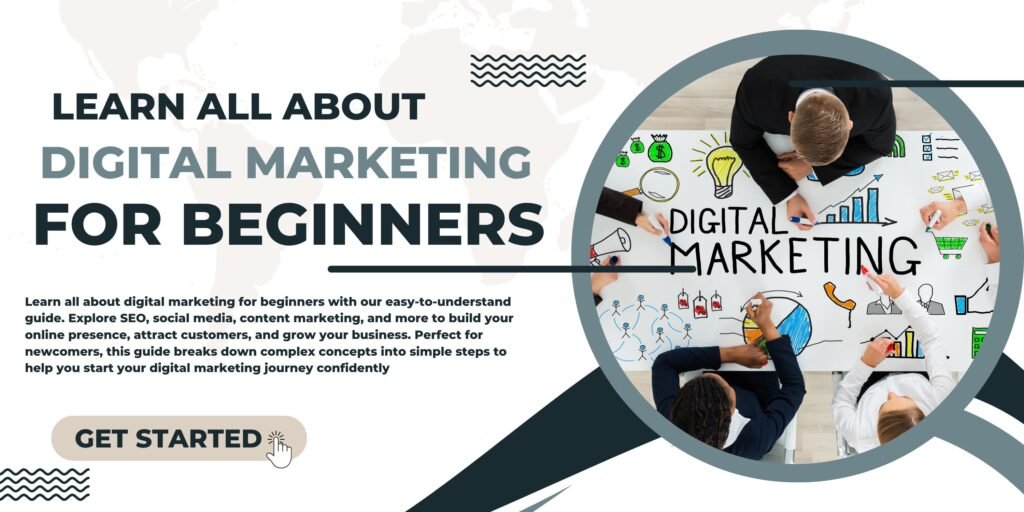In today’s digitally driven world, businesses must meet their audiences where they spend most of their time—online. That’s where digital marketing comes in. From improving your visibility on search engines to engaging with users on social media, digital marketing offers a broad range of tools and strategies to grow your brand, generate leads, and increase sales.
This blog breaks down the major components Slot Gacor of digital marketing, highlighting what you need to know to create an effective online presence.
What is Digital Marketing?
Digital marketing refers to all marketing efforts that use the internet or electronic devices. Businesses leverage digital channels such as search engines, social media platforms, email, and websites to connect with current and prospective customers.
Unlike traditional marketing, digital strategies provide real-time data, allowing marketers to adapt and optimize their campaigns continuously.
Key Components of Digital Marketing
1. Search Engine Optimization (SEO)
SEO is the process of optimizing your website to rank higher in search engine results pages (SERPs), thereby increasing organic (non-paid) traffic.
Types of SEO:
- On-page SEO – optimizing content, HTML tags, and site architecture.
- Off-page SEO – building backlinks and social signals.
- Technical SEO – improving site speed, mobile-friendliness, and crawlability.
Why it matters: Over 90% of online experiences begin with a search engine. Appearing on the first page of Google dramatically increases your visibility and credibility.
2. Content Marketing
Content marketing involves creating and distributing valuable, relevant, and consistent content to attract and retain a clearly defined audience.
Popular content types include:
- Blog posts
- Videos
- Infographics
- E-books
- Webinars
Benefits:
- Builds trust with your audience
- Improves SEO rankings
- Generates leads and sales
- Establishes authority in your niche
3. Social Media Marketing
This strategy uses social platforms like Facebook, Instagram, LinkedIn, and Twitter to promote products, engage with followers, and build brand loyalty.
Key social strategies:
- Paid advertising (boosted posts, ads)
- Influencer partnerships
- Organic posts and community engagement
- User-generated content
Advantages:
- Direct interaction with consumers
- Brand visibility and awareness
- Powerful targeting options in ads
- Real-time feedback and customer service
4. Pay-Per-Click Advertising (PPC)
PPC is a model where advertisers pay a fee each time someone clicks on their ad. The most common form is Google Ads, but platforms like Facebook, LinkedIn, and YouTube also toto slot offer PPC options.
Why use PPC?
- Immediate visibility in search results
- Precise targeting by demographics, location, and interests
- Budget control and measurable ROI
- Complements SEO for maximum exposure
5. Email Marketing
Email remains one of the most effective digital marketing tools. It allows direct communication with prospects and customers, promoting content, discounts, or company news.
Types of email campaigns:
- Newsletters
- Product announcements
- Event invitations
- Welcome or drip campaigns
Email marketing best practices:
- Segment your audience
- Personalize content
- Use strong calls-to-action
- Track open and click-through rates
6. Affiliate and Influencer Marketing
This involves partnering with individuals or third-party websites to promote your product or service. Affiliates earn a commission for each sale they generate, while influencers leverage their social following to drive awareness.
Benefits:
- Low upfront costs
- Access to new audiences
- Performance-based
- Builds credibility through trusted sources
7. Analytics and Data Measurement
A critical part of digital marketing is analyzing data to assess performance and ROI. Tools like Google Analytics, Facebook Insights, and CRM dashboards help marketers track user behavior, traffic sources, and conversions.
Key metrics to track:
- Website traffic
- Bounce rate
- Conversion rate
- Cost per acquisition (CPA)
- Return on investment (ROI)
Integrating Your Digital Marketing Strategy
The most successful digital marketing campaigns combine several channels for maximum impact. For example:
- Use SEO to drive organic traffic to your blog.
- Promote blog posts through social media and email newsletters.
- Retarget visitors with display ads.
- Use analytics to refine messaging and improve conversion rates.
Omni-channel marketing ensures a consistent brand experience across all touchpoints, improving engagement and retention.
Staying Updated in a Rapidly Evolving Field
Digital marketing trends evolve constantly. Voice search, AI-powered tools, video content, and personalized marketing are just a few innovations shaping the future. Staying current with industry blogs, courses, and certifications ensures your strategies remain competitive.
Some trusted resources include:
- HubSpot Academy
- Google Digital Garage
- Moz Blog
- Neil Patel
- Search Engine Journal
Final Thoughts
From SEO to social media, digital marketing encompasses a wide array of strategies designed to grow your brand in a competitive online environment. Whether you’re a startup or a seasoned business, mastering these digital techniques can open the door to limitless growth opportunities.
By integrating a comprehensive digital marketing approach—and consistently analyzing performance—you’ll be well-positioned to attract, engage, and convert your target audience effectively.
